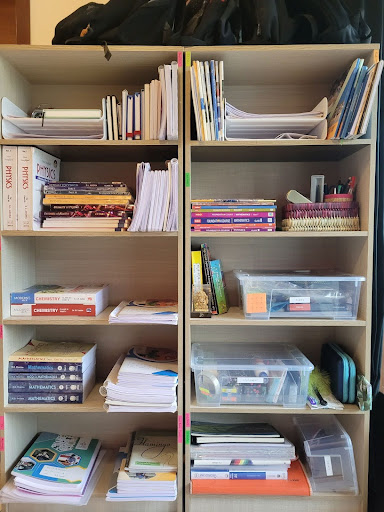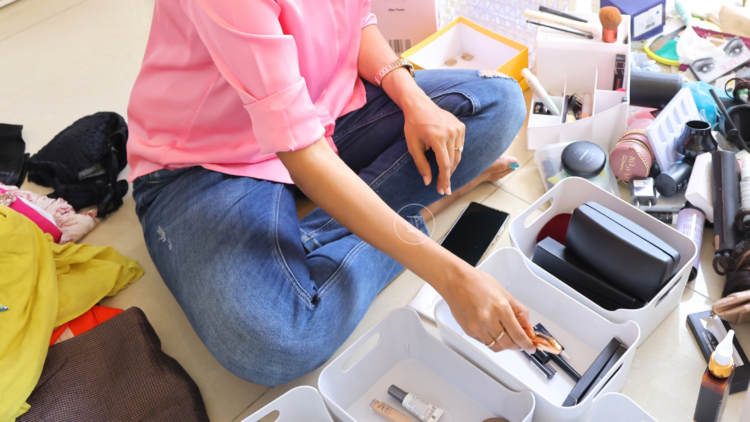We’ve all said it before: “I’ll deal with this later.” Clutter, whether it’s a pile of clothing on a chair, unread emails, or emotional baggage, may gradually accumulate and weigh us down until we realize it.
Clutter may easily collect in our houses, making them feel disorganized and overwhelming. An orderly house not only looks nicer but also encourages a sense of peace and productivity.
At Arrange It All, we think that decluttering is more than just tidying up; it’s about making room for clarity, tranquillity, and mindful living.
Let’s look at what clutter is, how it manifests in many aspects of our lives, and why getting rid of it may be the best thing you can do for your mind, home, and heart.
What is Clutter

Clutter. The word itself doesn’t sound very good, right? Clutter prevents you from living the life you were born to lead by stopping you from completing tasks or enjoying life. The term “clutter” appears everywhere. However, it refers to a mess or disorganization, particularly when it involves a large number of things in an untidy or badly organized way. However, many individuals are unaware that clutter is not limited to our possessions. Yes, physical clutter may fill our houses, but it can also be digital, mental, emotional, or spiritual.
Types of clutter
-
Physical:
With drawers overflowing, kitchen gadgets you no longer require, piles of paper lying near the sofa, and children’s toys in every corner can eat up room and energy. Visually appealing? Not really.
-
Digital:
Digital clutter may take space in your life in the form of thousands of pending emails, a full storage with photos you don’t need and apps that you no longer use. Just like it slows down the phone or computer, it also affects your mood and mental clarity.
-
Emotional:
Overwhelmed with work? Had a fight with your best friend? Negative emotions or unregulated emotions can clutter your mind and affect your nervous system. It can be subtle but absolutely terrifying.
-
Mental:
Endless to-do lists, intrusive thoughts, hesitation, and multitasking may all impair your thinking. Mental clutter makes it difficult to focus, prioritize, or feel serene, even in neat surroundings.
The Hidden Impact of Clutter
Clutter isn’t just a visual issue. It affects our:
- Mood: Having cluttered spaces can cause you stress and anxiety, which can affect your health.
- Productivity: You can also lose your productivity when you have too much “stuff” because of unwanted distractions.
- Relationships: Ever found yourself feeling irritated at home? Disorganized homes can lead to tension or embarrassment.
- Sleep: You can not expect a good sleep if you have a pile of clothes sitting on your bed or have the smell of socks filling the room.
When your space feels chaotic, your mind often mirrors it.
Why Do We Hold On to Stuff We Don’t Need?
Letting go can be emotional. Some common reasons:
- “What if I need it someday?”
- Guilt
- Sentimental value
- Fear of waste or regret
- Decision fatigue
At Arrange It All, we help clients move past this overwhelm with systems that are gentle, supportive, and rooted in what truly aligns with your lifestyle.

Conclusion
Clutter is more than simply a collection of items; it reflects where we are emotionally, psychologically, and spiritually. But there’s good news: it can be cleared. You can recover your space and tranquillity one piece at a time, with intention and the correct assistance.
Need assistance getting started? Arrange It All, a professional home organizing service, transforms the everyday lives of women who are frequent travellers, working professionals or are someone who just needs a helping hand in their busy lives. A single visit with Arrange It All can help you see your clutter differently and start creating long-term habits.
FAQs Based On Clutter
-
What is the psychology behind clutter?
Clutter can trigger feelings of anxiety, overwhelm, or guilt. Psychologically, it represents postponed decisions and emotional attachments which is why it’s hard to let go.
-
What is the clutter effect?
The clutter effect describes how unnecessary things in our environment impair our capacity to concentrate, absorb information, and feel peaceful. It is connected to cognitive overload.
-
Is Clutter good or bad?
While a little “creative mess” can feel personal or cozy, chronic clutter typically has negative effects on mood, energy, and time. It’s about finding the right balance for you.
-
How do I stop clutter?
You can start small: one drawer, one shelf, by adopting habits and setting regular decluttering check-ins.
-
What are the symptoms of clutter?
Symptoms may include fatigue, anxiety, stress and overthinking.


